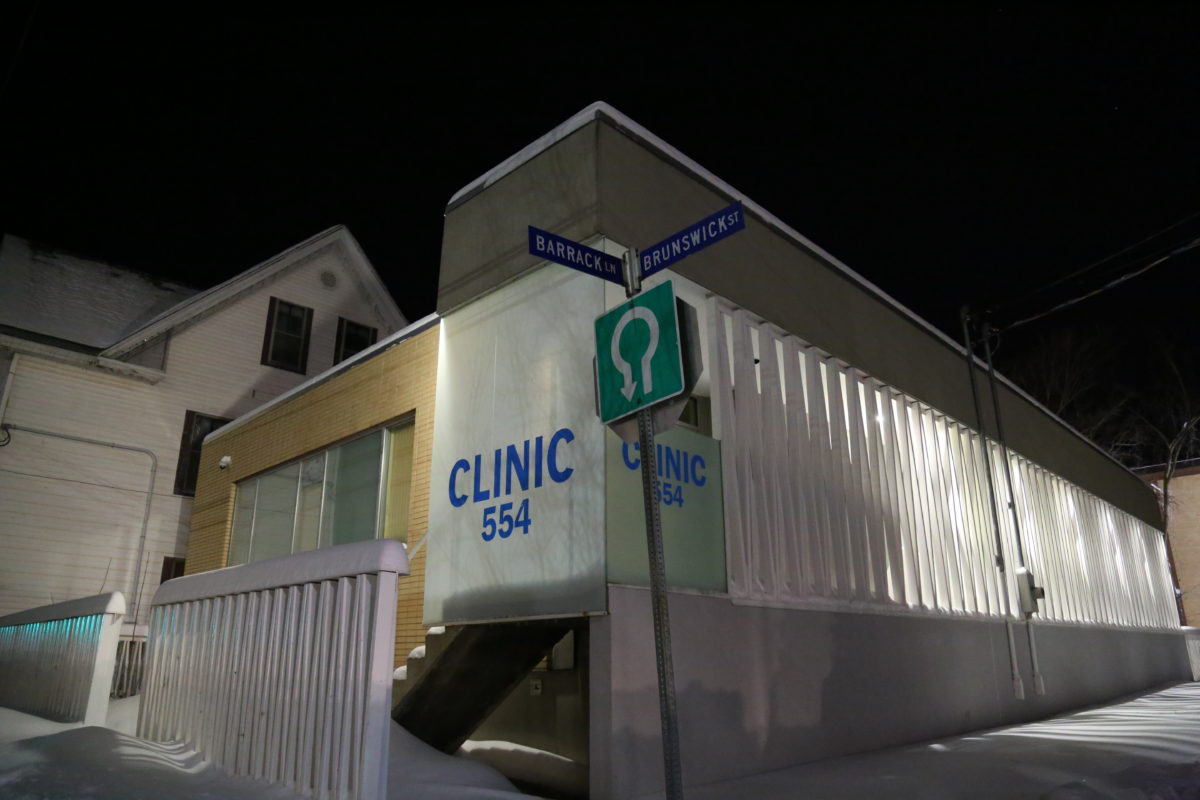
Thursday evenings pro-choice abortion panel at the Ludlow Law building was a call to action for equal access to services in New Brunswick.
As part of an English project, the panel was organized by Abbey LeJeune, a Grade 11 student at Fredericton High School and member of Fredericton Youth Feminists.
A goal of the event was to educate people about abortion access in New Brunswick and was attended by a larger-than-expected crowd and New Brunswick’s Green Party leader, David Coon.
Two hospitals in Moncton and one hospital in Bathurst offer publicly funded abortions covered by a patient’s medicare card. Clinic 554 in Fredericton is the only private clinic in New Brunswick that does abortions. However, abortions at Clinic 554 are not provided for by a patient’s medicare card— meaning that patients must pay between $700 to $850 for an abortion there.
“Many people fear going to the hospitals,” said Allie Webster, founding member of Reproductive Justice New Brunswick (RJNB) and a worker at Clinic 554. “It is easy for anti-choice staff to upset a patient [at a hospital]… Hospital care is an important and necessary part of abortion care, but it’s just not enough.”
In New Brunswick, you can only get a funded abortion if you have a New Brunswick or Prince Edward Island health card (a PEI health card only works at Moncton’s hospital).
“All health care services are publicly funded by medicare at Clinic 554, except abortion,” said Valerie Edelman, Clinic 554 manager.
Edelman would like the abortion services at Clinic 554 to be publicly funded. “New Brunswick is the only province where patients have to pay at clinics…The costs shouldn’t be a barrier to equal access to abortions.”
According to RJNB, one in three women will have an abortion. Women ages 20 to 24 year have the highest abortion rate in New Brunswick.
In Canada there is no federal accord regarding abortion, and therefore the provinces are in charge of regulating abortions.
Across Canada, most abortion clinics or hospitals are located in larger cities, often the capital city of the province, which means that people in rural communities have to travel further to get an abortion. A statistic mentioned at the panel claimed that 51 per cent of people seeking an abortion in New Brunswick have to travel out of their region.
“There is going to have to be quite a bit of rethinking on the part of the provinces,” said Jula Hughes, associate professor of law at UNB.
Hannah Gray, the moderator at the event and volunteer at RJNB, mentioned that, in addition to the lack of access to abortions, there is also a lack of access to birth control in Fredericton and that youth have been denied birth control for not being in a committed relationship.
“People should be at the heart of health care,” said Marilyn Merritt Gray, a nurse and panelist at the event. “In the province we’ve lost that focus.”
